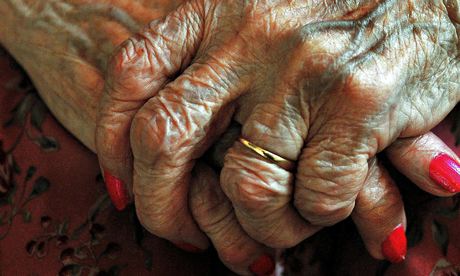Twenty-two billion pounds: that’s the estimated annual cost to employers and taxpayers of sickness absence. Much of that relates to mental ill-health – which, along with musculoskeletal complaints, causes about 80% of sickness absence – and sick leave seems to be on the rise.
A recent survey by the Engineers Employers Federation found that 41% of companies had witnessed an increase in long-term absences over the past two years.
On top of that, there is the cost of presenteeism – people turning up for work despite being unwell and underperforming as a result. The impact on productivity is massive. Many end up losing their job as a result of ill-health.
That’s the cold economics. But the human cost is dreadful. Lost earnings and the awful loss of self-worth that comes with the unemployment. Those with severe and enduring mental ill-health lose out the most, with an employment rate of just 7%.
Simon Stevens, the chief executive of NHS England, highlighted this miserable state of affairs in his Five Year Forward View for the NHS back in 2014. He focused on the role of employers, arguing that incentives should be offered to those “who provide effective Nice-recommended workplace health programmes for employees”. Enlightened thinking for an NHS boss: put more effort into prevention and everyone could benefit.
Now we have an opportunity to test this idea. This week the West Midlands became the first city region to publish an ambitious Action Plan for Mental Health. It is the culmination of more than a year’s work by the mental health commission I chaired on behalf of the West Midlands Combined Authority. At its heart is a focus on prevention and early intervention.
We were asked to look at the total cost of mental ill-health to the region, and to consider how we could make more effective use of resources in order to achieve better results for people and to have a positive impact on the regional economy. One of our key ideas is a trial of what we have called a wellbeing premium – a discount on an employer’s business rates in return for that employer committing to key evidence-based actions to improve the wellbeing of people at work.
We know, for example, that the training of line managers can have a positive impact on how people are treated at work, the culture in the workplace, and the support people receive when struggling with ill-health. We know that it is important to have someone at board level taking responsibility for wellbeing. There is also emerging evidence of the value of training people in mental health first aid.
Provided we can secure the funding to pursue this trial, our aim is to evaluate the impact over a two-year period. We hope to work with 100 employers, from businesses employing just a handful of staff up to large organisations. Our aim is to build the evidence of what works over that period.
We believe we will be able to demonstrate that, once companies have been encouraged to act through the receipt of the wellbeing premium, they will see the potential positive impact on their bottom line. For this reason, we believe that the wellbeing premium should be time-limited. Once a company sees the value, then there will be no need for any continued public subsidy.
This is a win-win situation. For employees, better support at work, reduced distress from sickness absence, and reduced loss of earnings. For employers, improved productivity, reduced sickness absence and fewer people leaving work unnecessarily at enormous cost to the business. For government, improved productivity – needed now more than ever. And supporting people more effectively to stop deterioration of health means a reduced burden on the NHS and savings on the benefits bill.
This proposal sits alongside other exciting initiatives. We are working with the government’s Health and Work Unit to deliver a multimillion-pound trial of individual placement and support. This is an approach, with a strong evidence base, that aims to get those with mental ill-health back into work. The trial will work in both primary and secondary care.
We will also use public procurement to encourage companies tendering for contracts to take action to improve the wellbeing of their workforce. Surely it’s not too much to ask for such companies to demonstrate that they are good employers.
These are just a few aspects of a new approach that aims to focus on preventing ill-health rather than repairing the damage once it’s done. Our health and care system is under unsustainable pressure. It will need more resources in the years ahead, but we can also be smarter at acting to prevent ill-health.
Why a tax break for employers is the smart way to improve mental health | Norman Lamb

